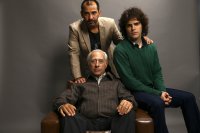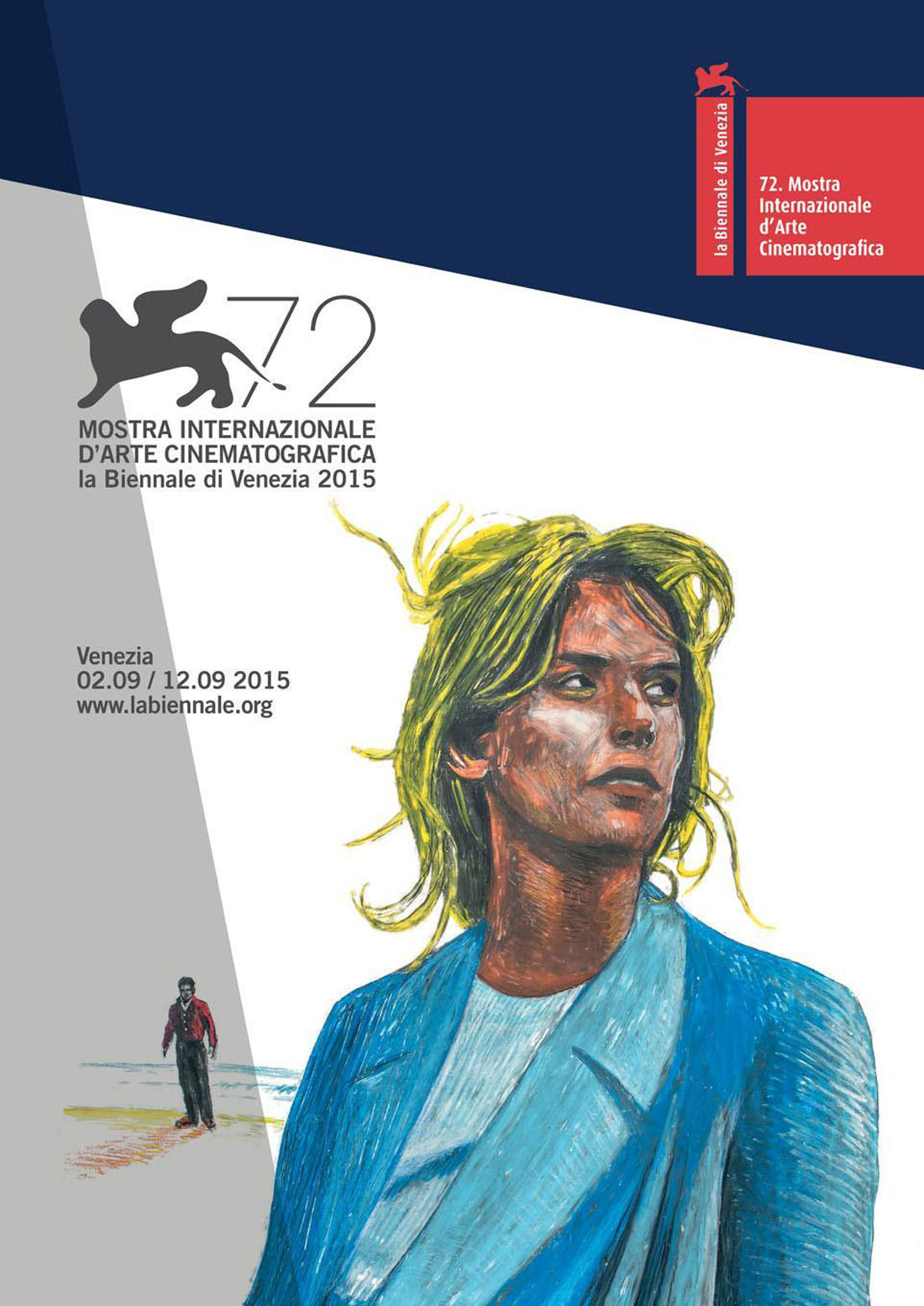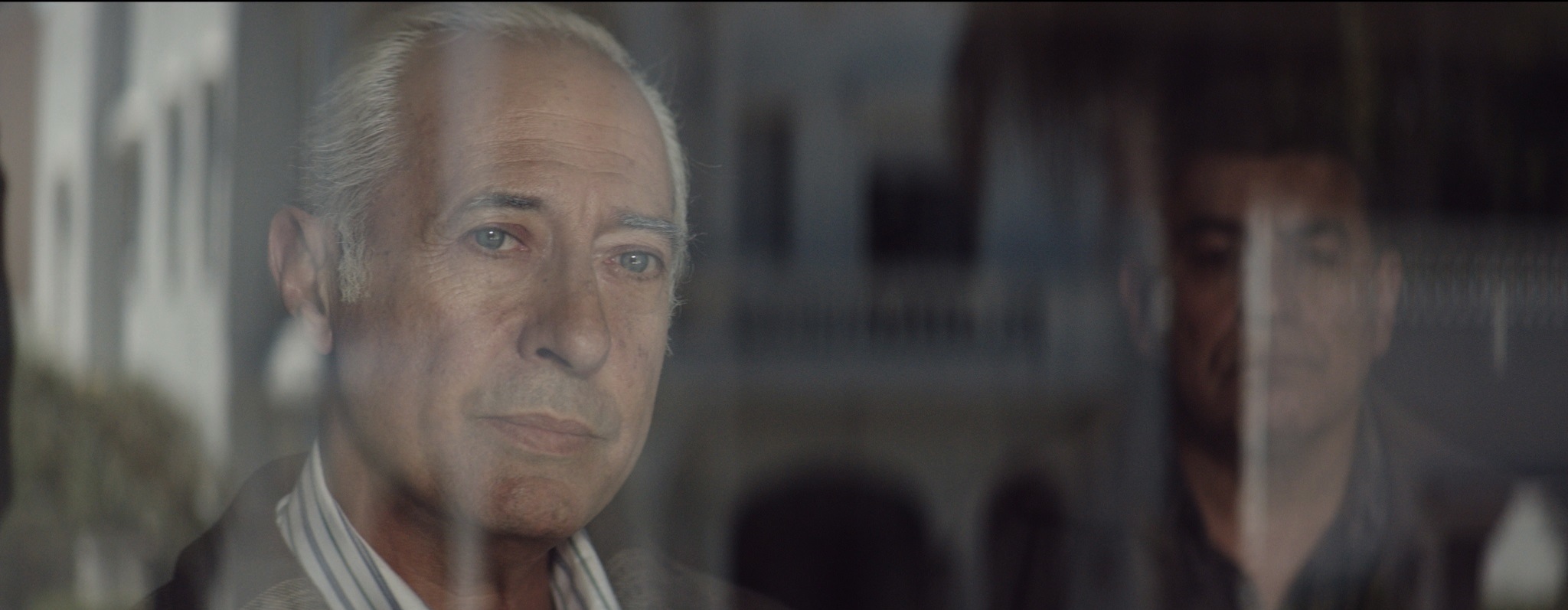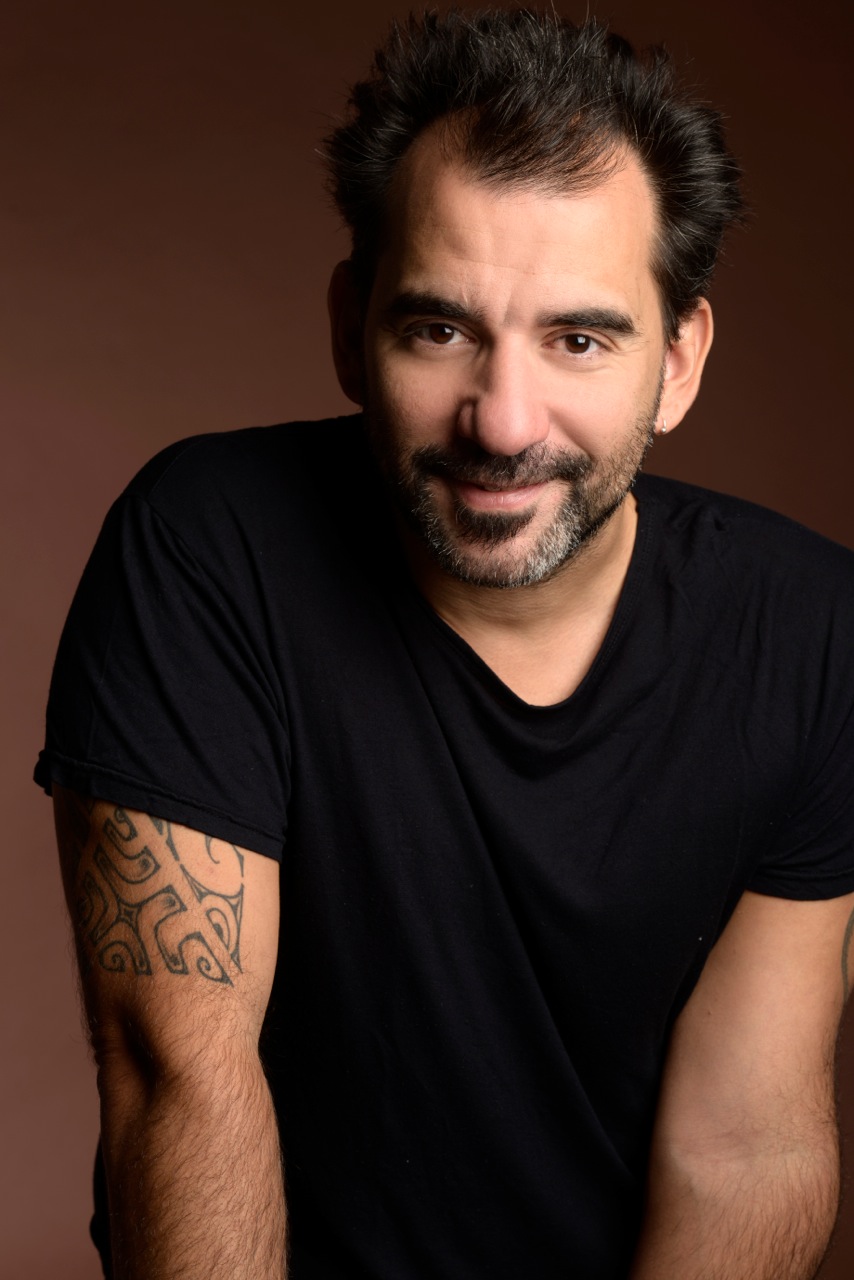El clan

The film is about a real criminal case that happened in the first ‘80s at the end of the military dictatorship, where an apparently nice family hides a criminal activity of kidnapping and murders, with the lead of the patriarch Achilles Puccio.
Pablo, there is a connection beetween the story of this father who kidnaps and kills people and the dictatorship in Argentina?
Yes it’s like a simptomp, that’s my interpretation,. In general crime cases always say something about the time period, I think this it could happen like it was in the 80s, because of that particular period of time in Argentina, but if you forget about the details, unfortunately it could happens today, but not only there. The film talks about hypocrasy, indifference, so if you don’t look honestly to reality you have these monsters, it’s more about how do we react when reality is asking you to react and we choose to look at something else. The film is about how something could happen right in front of your nose, when you are pretending to look at something else.
How well known is this story in Argentina, are people familiar with what happened?
I thought that, I thought it was a very famous case, but when I went through the reaserch I realized it wasn’t that much. Now with the film coming out a book appears, everybody speaks about the case, but it wasn’t very famous.
But now in Argentina with the film opening three weeks ago it becomes very famous, then the film was a big surprise, it has amazing numbers at the box office, it has broken all the records. But when I started the process there was just us looking into the case, trying to get clues, of course in the story of argentinian crime is one of the biggest cases, but there was no material, now it’s more popular because of the success of the movie.
Do you think that this success comes from the film itself or from the subject of the movie?
It’s hard to tell, because the film is not an easy going film. I can’t tell that it is a good film… but we have broken the record in the first week, also compared to american movies, and the movie it’s also 16 rated, so it’s not for all public, we can’t expect that! So I think is a combination of things: it’s the movie, the story, the actors. It’s similar to what I felt at the public screening here in Venice, people were very touched from the film, emotionally touched, even when it’s cold, even when you have nothing to do with them, even when you are frightened by these characters, especially Archimedes, but also the rest of the family. I think the movie can’t let you indifferent, yesterday I was very touched by the reaction of the audience. We were worried about how a film like that could work out of home, when you don’t have the context, you don’t have the details, but I think that what is important in the film is not the case, but the relationship beetween father and son, which is more universal and more understandable to any audience. The film is not the crime procedure, but the family perspective of that, the intimacy in the family and the relationship beetween the father Archimedes and the rest of the characters. Especially the link beetween Archimedes and his son reaches everyone, also outside Argentina, is what lead you to understand the horror of that story.
Almodovar is beetween producers of the movie, how was the production process, how the movie came to life?
Augustin and Pedro were trying to make a movie with me from years and it happens now. From Argentina we send the script to them and for us was also interesting to have a contribution from outside, because of all these context things we were talking about, was great to have their point of view. Then we speak the same language and I’m half spanish myself, but we needed another perspective, with some distance and it worked very well in the writing and then again in the editing. We talked a lot about how do we translate it into a more universal tale.
How did you worked in the writing process with the real material and how did you get to this story, with these characters?
It was a challange because for the people that know the story it could be boring to see. So I had to have in mind this part of the audience, but again the mayority of the audience have no idea about the real case. So it was hard to balance, but then I’m happy because the film has a lot of layers, so you can understand a lot of details about how they were caught or about how they performed the kidnapping, so we have different approaches to the story, but again it’s more based in the personal links in the family relationships. And that’s also a way for the audience to share our own process in the research, which wasn’t organic, it was a little caotic for us to get into details. I tried to share with the audience our own process, not linear, but made with this kind of slices, or pieces. Maybe it’s a little demanding for the audience this structure, because at the beginning it’s not clear what year is, beetween footage and the movie, but what is important is the mood, we are introducing the viewer into this world and finally it’s not so important to know exactly what year it is or who are all the secondary characters. Off course if you wanna know it’s there, but the movie it’s not a documentary about the case. So we used all these elements to create an atmosphere, to create a space for these characters to live and to breathe.
When did the music come into play? When did you started to think which particular song you wanted and especially that kind of music?
It’s mixed, for example the Kinks with Sunny Afternoon was written in the first draft, where it is in the film. I liked the colour, the tone of the song, this kind of sandness and also the lyrics, it’s in a way close to this idea of broken dream, the remember of the past, a sort of melancholy. And also because when you talk about a period movie is good to see and listen something more open than, in this case, the 80s: sometime when you see a period movie in the 1982 everything is from ’82, the cars, the dresses, what you see on tv, nothing is from before. Is not that important, but it’s something sometime ago and I decided to have for example Ella Fitzgerald, music you could listen in the 80s on the radio, but to me it was important to create this atmosphere of a open past, bigger than these four years. With others songs as Just a Gigolo and other music from the 80s, in each case we have a song that belongs to each year. And the idea of using pop music in very brutal scenes helps the audience to, in a particular way, enjoy that, because otherwise you would be out, it’s so unfair what they do off course, so brutal and explicit that it’s an invitation for the audience to take some distance and just enjoy the ride for this particular moment of the movie.
In the film the charachter of the father is connected to the secret police and people in the regime, it was also the case in the real story?
Yes… it’s a long story. All of Archimede is fascinating, is great, I mean is great for the movie. Actually if you go back into the seventies, there is a case that is mentioned in the movie, in 1973 when there was the last government of Peron, it was the last democratic period before dictatorship, but even at this time the repression started and there was an organization called triple A and they where like a black hidden force and they killed citizens even in democracy.

And Archimede was in this organization and then he turned into abducting and kidnapping people for the military police and once the democracy came back he went directly into the intelligence system. And we know that everywhere intelligence agencies work in the shadows, no one knows exactly what they do, so he has always been involved with this unclear side of the power for almost twenty years, democracy, dictarship and then democracy again. But in the end when democracy finally was stable he was caught, because he couldn’t be protected anymore by this shadow system.
You are probably too young but what is your relationship with the military junta?
I was a kid, but I have memories about Malvinas and the world championship, these big events. But what I really remember and it’s part of the movie in some ways, it’s how things changed when democracy came, then I realized something wrong was happening before, it’s a kid perception. I remember this change, you can feel happyness, then I realized we were living in the shadows.
Do you think of the family in the movie as a microcosmo, a kind of happy family with dark side, in the same way as the dictatorship was perceived at the time?
In a way the film ask yourself that. It’s like an invitation to think about that. What’s happening in your country it depends in your involvment in how you are involved with your own reality. The film talks about what’s happening inside your family, what did you do at that time to change the things or to accept the things. But it’s hard to generalize.
Particularly the way you end the film, that scene with him jumping down the balcony and you see this little grin on his face… at what point did you decide to end the film in this way?
In the first draft, and is written in the same way you see in the movie. It’s the kind of scene that you can’t improvise, it takes a long time in preparing and shooting and the effects, so you really need to be sure. Which is a big risk, because until it’s finished you really don’t know if it’s gonna work. This fact was also very important in the news, because this case it was followed like a serial, for years. It took years to understand that the Puccio were responsable for all these facts, and also for the people was difficult to accept that. This news of Alejandro jumping happens like three years after the arrest and the suicidal attempt was something very impressive. There is a lyric of tango very popular that says “Ni el tiro del final te va a salir”, which means “If you want to kill yourself you can’t do it”, it explains this situation when you are so unlucky you don’t even deserve your own death, you can’t handle it, you are just less than unlucky and is based on this ni el tiro del final te va a salir.




